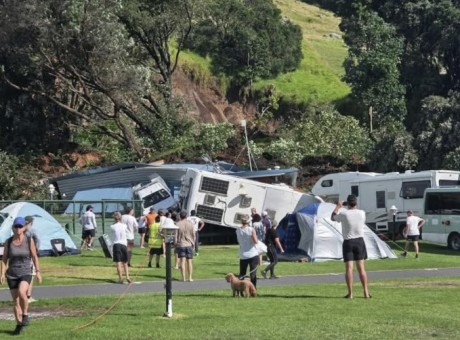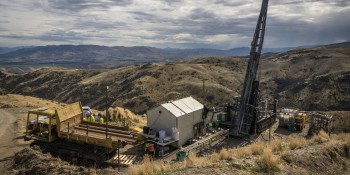Government reveals first changes to Resource Management Act

Farming, mining and other industrial regulations are being scrapped or amended under the government's first changes to the Resource Management Act.
The changes include revision of stock exclusion, winter grazing, Te Mana o te Wai, mining consenting, and suspension of Significant Natural Area requirements.
RMA Reform Minister Chris Bishop announced the government's plan in a statement today, highlighting five changes the government expected to introduce in its legislation due to be introduced to Parliament in May and passed by the end of the year.
He said the government was aiming to "reduce the regulatory burden on resource consent applicants and support development in key sectors, including farming, mining and other primary industries".
The changes in this bill were focused on changes that could take effect quickly, and give certainty to councils and consent applicants, he said.
The five changes highlighted include:
- Repeal intensive winter grazing regulations
- Remove low-slope map from stock exclusion regulations
- Suspend requirement for councils to identify new Significant Natural Areas for three years
- Resource consents will no longer need to demonstrate accordance with Te Mana o te Wai heirarchy of obligations, during the review of the National Policy Statement on Freshwater Management
- Coal mining consenting pathways to be re-aligned with other mining activities in the National Policy Statements for Indigenous Biodiversity and Freshwater Management, and the National Environmental Standards for Freshwater
The coal mining changes had already been announced by Resources Minister Shane Jones.
Agriculture Minister Todd McClay said the stock exclusion and winter grazing changes had been agreed by Cabinet, and were focused on farm-level and regionally suitable solutions.
Te Mana o te Wai was introduced to the Freshwater Management policy in 2014 by the previous National-led government to stop waterways from degrading, and ideally improving the health of freshwater sources.
It has been altered since then, but the latest update in 2020 sets out priorities, with the health and wellbeing of the waterway foremost, the health needs of people prioritised second, and thirdly prioritising social, economic and cultural wellbeing. It sets out obligations for tangata whenua to preserve, respect and protect freshwater, for decision-makers and New Zealanders to manage freshwater to ensure it sustains future generations, and provides for the health of the nation.
McClay said removing the need for resource consents to show they could meet these requirements would "better reflect the interests of all water users".
Associate Environment Minister Andrew Hoggard said property and catchment specific farm plans made sense, but sector groups and farmers had complained the current system was too complex. They had argued farm environment plans and industry assurance programmes shoudl be integrated with freshwater farm planning, he said.
He said the changes to Significant Natural Areas reflected concerns that "less significant areas are being captured and this can place too much restriction on how land is used".





















